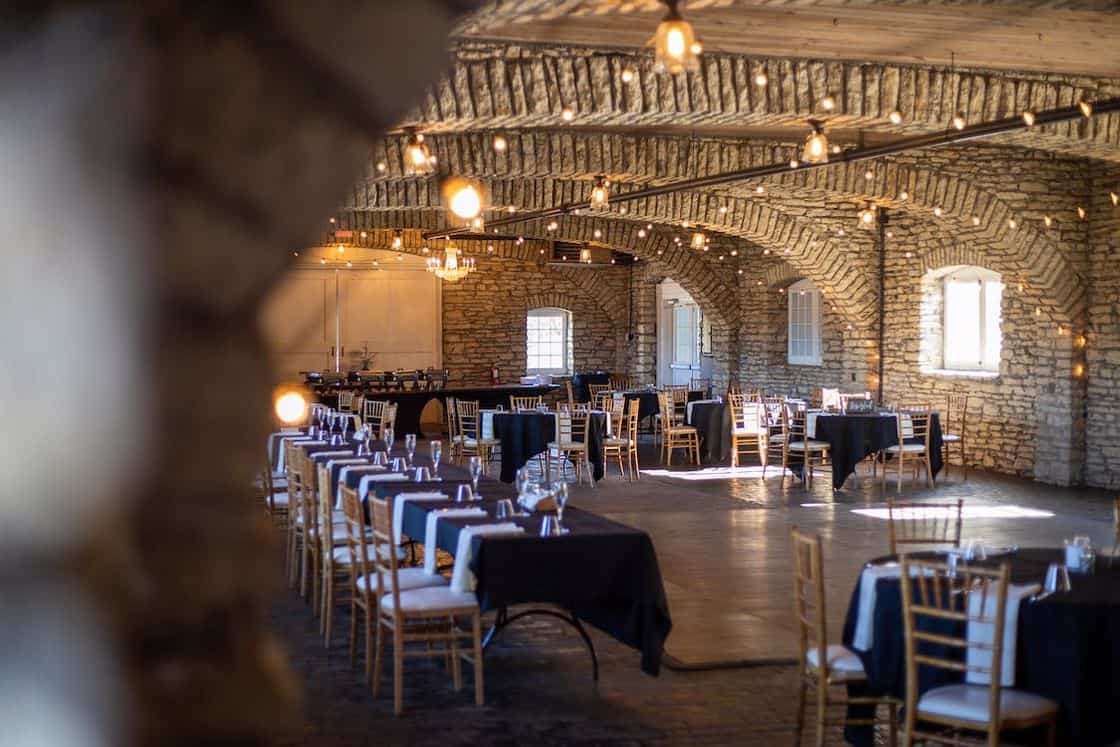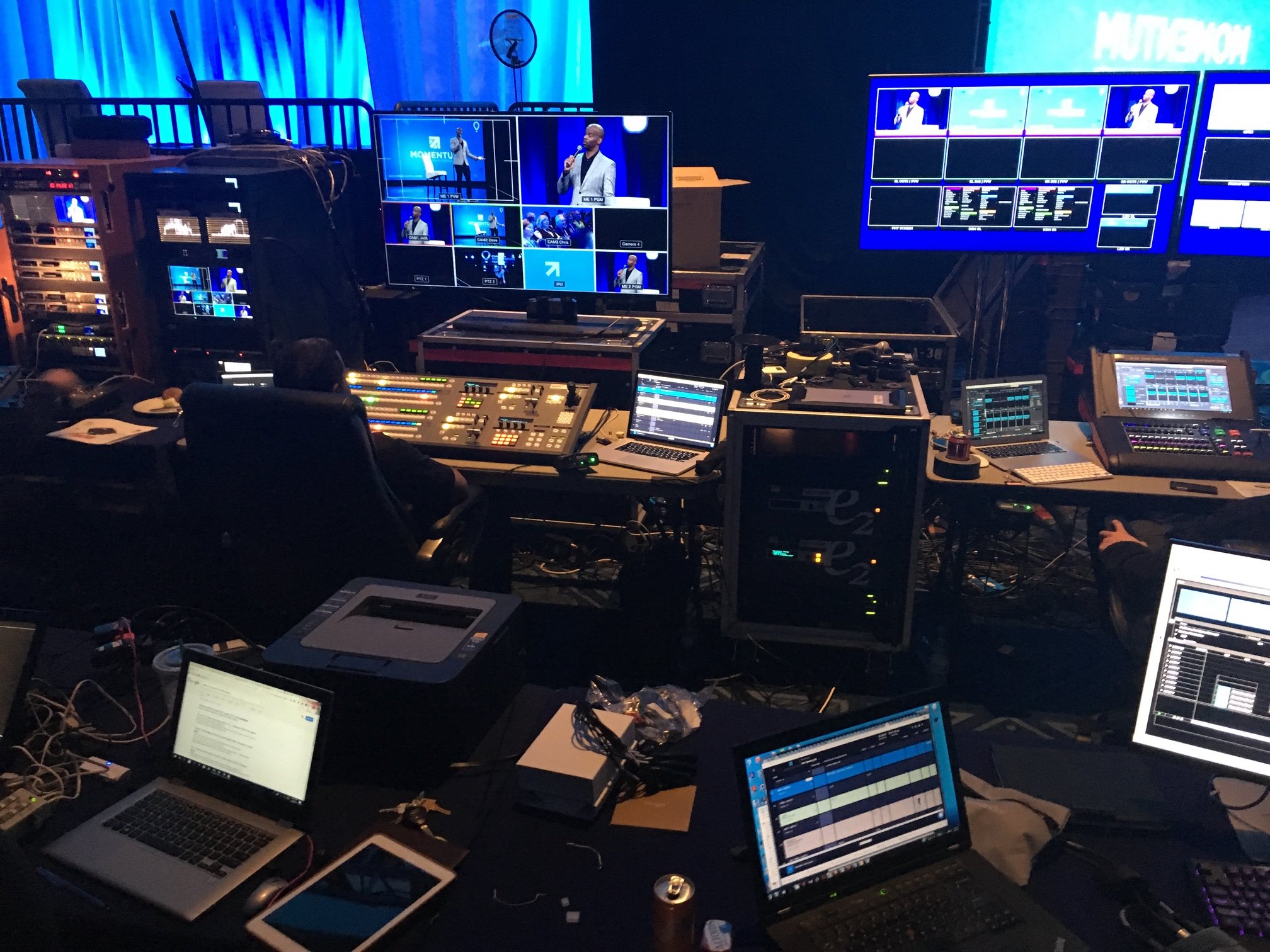Just How Event Production Functions: A Comprehensive Consider the Refine
Event production is a facility and organized process that calls for cautious preparation and implementation. It begins with establishing clear objectives and understanding the target market. Each action, from budgeting to location choice, plays an important function in guaranteeing success. As the process unfolds, numerous components need to line up perfectly. Yet, the nuances of this intricate procedure commonly go unnoticed. What are the essential stages that add to an unforgettable event?

The First Planning Stage
When beginning on event production, mindful preparation is important to ensure a successful result. The preliminary drawing board acts as the foundation for all subsequent efforts. During this stage, event manufacturers must define the event's purpose and goals plainly. Determining the target market assists tailor the experience and messaging, guaranteeing significance and engagement.Producers should likewise think about the event style, whether it be in-person, virtual, or hybrid, as this will affect numerous logistical components. Selecting a suitable day and place is critical, as it influences access and availability.Furthermore, constructing a reliable group is essential for splitting responsibilities and streamlining interaction. Developing a timeline with turning points guarantees all jobs are finished on time. This stage entails detailed study, including identifying possible difficulties and developing strategies to minimize dangers. Ultimately, a well-structured first preparation phase establishes the tone for a successful event production trip.

Budgeting and Source Allotment
In event production, effective budgeting and source allocation are essential for success - event production charlotte. Establishing economic specifications establishes the foundation for all succeeding decisions, while source distribution methods guarantee that every element of the event is properly sustained. Together, these aspects aid maintain control over expenses and optimize using readily available resources
Developing Financial Parameters
Establishing financial criteria is vital to the success of any type of event production, as it establishes the foundation for efficient budgeting and source allotment. This procedure begins with specifying the total budget, which incorporates all elements of the event, consisting of venue prices, event catering, and advertising. By determining readily available funds, event organizers can prioritize expenditures and designate sources accordingly. In addition, it is important to conduct extensive market study to anticipate potential costs and determine financing resources, such as sponsorships or ticket sales. Developing clear economic criteria also aids in risk administration, enabling organizers to allot backup funds for unanticipated expenditures. Ultimately, a well-defined budget serves as a roadmap, guiding the event production team towards achieving their goals while maintaining financial control.
Source Circulation Approaches
Reliable source circulation methods are necessary for making the most of the effect of an event while adhering to budget constraints. Effective event production needs a careful technique to budgeting and resource allocation. Planners have to focus on necessary aspects such as venue, catering, and modern technology, making certain that funds are designated to areas that enhance participant experience. An in-depth budget plan should describe expected expenditures and determine areas for possible expense savings, such as bargaining with vendors or exploring sponsorship possibilities. Additionally, tracking expenses throughout the planning procedure assists prevent overspending. By using tactical source distribution, event manufacturers can provide a memorable experience while keeping fiscal duty, ultimately adding to the overall success of the event.
Place Selection and Logistics
Picking the best place is necessary to the success of any kind of event, as it sets the phase for the overall experience. Location selection includes reviewing various aspects, including capability, access, and place. Organizers must think about the target market and the nature of the event, ensuring the location straightens with the event's goals.Logistics play a significant function in this procedure, entailing setups for seating, audiovisual devices, and providing solutions. An appropriate venue ought to assist in smooth circulation for attendees and staff, improving engagement.Additionally, evaluating prospective venues for features like vehicle parking, toilets, and fire escape is essential for safety and security and benefit. The timeline for securing the location is likewise important, as prominent areas may schedule promptly - event production charlotte. Comprehensive planning and timely implementation can eventually add to a seamless event experience, making venue selection and logistics fundamental elements of effective event production.
Creative Idea Advancement
While the location establishes the physical phase, imaginative concept development shapes the event's identification and story. This procedure starts with recognizing the event's function and target audience, allowing event producers to create an engaging style that resonates with participants. Conceptualizing sessions commonly consist of diverse perspectives, cultivating ingenious ideas that straighten with the event's goals.Once a motif is established, visual components such as color palettes, signs, and decoration are developed to boost the general atmosphere. Narration methods may additionally be integrated to develop an interesting journey for individuals, ensuring a memorable experience. In addition, considerations regarding amusement, activities, and interactive parts are lined up with the chosen idea, reinforcing the style throughout the event.Ultimately, effective imaginative concept growth guarantees that every facet of the event works cohesively, leaving a long-term impression on participants and meeting the event's objectives. This fundamental work lays the foundation for succeeding planning and implementation stages.
Collaborating With Suppliers and Providers
Successful event production rests on effective collaboration with suppliers and distributors. Selecting trusted companions, negotiating contracts properly, and ensuring prompt shipments are essential action in this procedure. Each of these elements contributes greatly to the total success and smooth execution of an occasion.
Choosing Reliable Allies
Exactly how can event organizers ensure a seamless production experience? Selecting reputable companions is necessary in attaining this objective. Event organizers must carry out extensive research to determine suppliers and providers with a tested track document of excellence. This consists of examining referrals, examining profiles, and examining customer feedback. Organizers must focus on partners that demonstrate professionalism and reliability, timely communication, and a determination to collaborate. Building solid relationships fosters depend on and enables quick analytic throughout the event. Additionally, it is advantageous to choose local suppliers that understand the location and local logistics. Eventually, a successful event rests on the synergy between coordinators and their companions, ensuring that every facet of production runs smoothly and successfully.
Bargaining Contracts Properly
Efficient arrangement of agreements is an important action in the partnership in between event planners and their suppliers and providers. This procedure entails clear interaction of expectations, deliverables, and timelines. Coordinators should carry out thorough research on market rates and sector standards to develop a standard for settlements. It is important to produce a collaborative atmosphere, urging open dialogue regarding terms, rates, and possible backups. Organizers need to also prioritize understanding the supplier's abilities and limitations to align their needs properly. Adaptability can result in mutually useful arrangements, cultivating long-term partnerships. Crafting well-defined agreements that include specific efficiency metrics can help guarantee responsibility, eventually bring about successful event implementation and contentment for all celebrations involved.
Making Certain Prompt Distributions
Prompt deliveries are crucial for the smooth implementation of any type of event, requiring persistent partnership between coordinators and their vendors and distributors. Reliable communication is essential, as it assists develop clear expectations relating to distribution schedules, quantities, and certain needs. Organizers commonly develop detailed timelines to describe vital landmarks, making certain all events remain aligned throughout the process. Normal check-ins with suppliers can aid recognize potential hold-ups early, permitting proactive solutions. Additionally, building strong connections with trustworthy distributors cultivates depend on and liability, which can lead to much better service and prioritization. By prioritizing these collaborative efforts, coordinators can lessen interruptions, consequently improving the overall efficiency of event production and ensuring that all necessary products and solutions arrive as intended.
Advertising and Promotion Techniques
While organizing an occasion, the success of advertising and promo methods can significantly affect participation and interaction. Effective strategies typically include a combination of digital marketing, typical marketing, and grassroots outreach. Utilizing social networks platforms enables real-time interaction and targeted advertising and marketing, reaching certain demographics effectively. Email advertising my blog and marketing campaigns can additionally engage prospective participants with customized web content and reminders.Collaborations with influencers or industry leaders can likewise boost reputation and broaden reach. Developing engaging content, such as videos or blogs, aids to generate buzz and endure passion leading up to the event. Additionally, leveraging early-bird discounts and special rewards can incentivize ticket purchases.Promoting through standard networks, such as posters or local media, remains appropriate, specifically in community-focused occasions. A thorough approach that integrates several approaches guarantees maximum exposure view it and interaction, eventually adding to the event's success and the production of a memorable experience for participants.
On-Site Execution and Management
On-site execution and administration are necessary parts that establish the total success of an occasion. Effective coordination during the event ensures that all aspects line up with the prepared program. Event managers manage logistics, including vendor sychronisation, equipment setup, and guest services. Keeping an eye on timelines and resolving any kind of unforeseen problems are essential for maintaining a seamless experience.The team plays a substantial role, as trained employees are accountable for numerous jobs such as registration, information circulation, and technological support. Communication amongst staff member is critical; it cultivates a joint setting and allows fast resolution of challenges.Additionally, safety protocols have to be complied with, guarding the health of all guests. Post-event evaluations are also part of on-site monitoring, giving insights for future improvements. By concentrating on these aspects, event manufacturers can create remarkable experiences that satisfy or exceed participant expectations while attaining the event's goals.
Frequently Asked Concerns
How Do I Pick the Right Event Theme?
Picking the best event motif includes considering the target market, event function, and place. Researching existing trends and collecting input from stakeholders can also influence imaginative ideas that reverberate and create an unforgettable experience.

What Prevail Blunders in Event Production?
Usual errors in event production commonly include inadequate preparation, inadequate interaction amongst staff member, budget mismanagement, overlooking to consider the audience's requirements, and failing to perform a thorough post-event analysis for future enhancements.
Exactly How Can I Measure Event Success?
To gauge event success, one can assess participant contentment, involvement degrees, budget plan adherence, and post-event responses. Secret performance indications, such as ticket sales and social media sites communications, also provide valuable understandings right into overall effectiveness.
What Should I Do if It Drizzles on the Event Day?
In the event of moisten the day, the organizer needs to carry out backup plans, such as safeguarding camping tents or moving tasks indoors. Communication with participants about adjustments is necessary to guarantee a smooth experience in spite of weather difficulties.
Just How Can I Guarantee Participant Engagement Throughout the Event?
